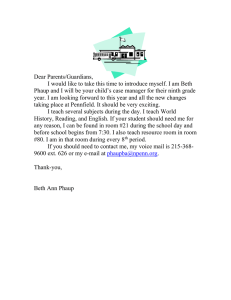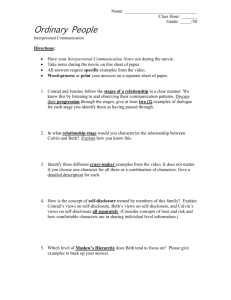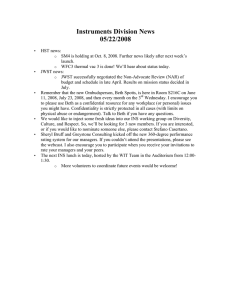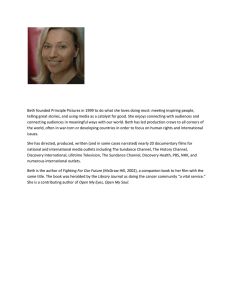Introduction
advertisement
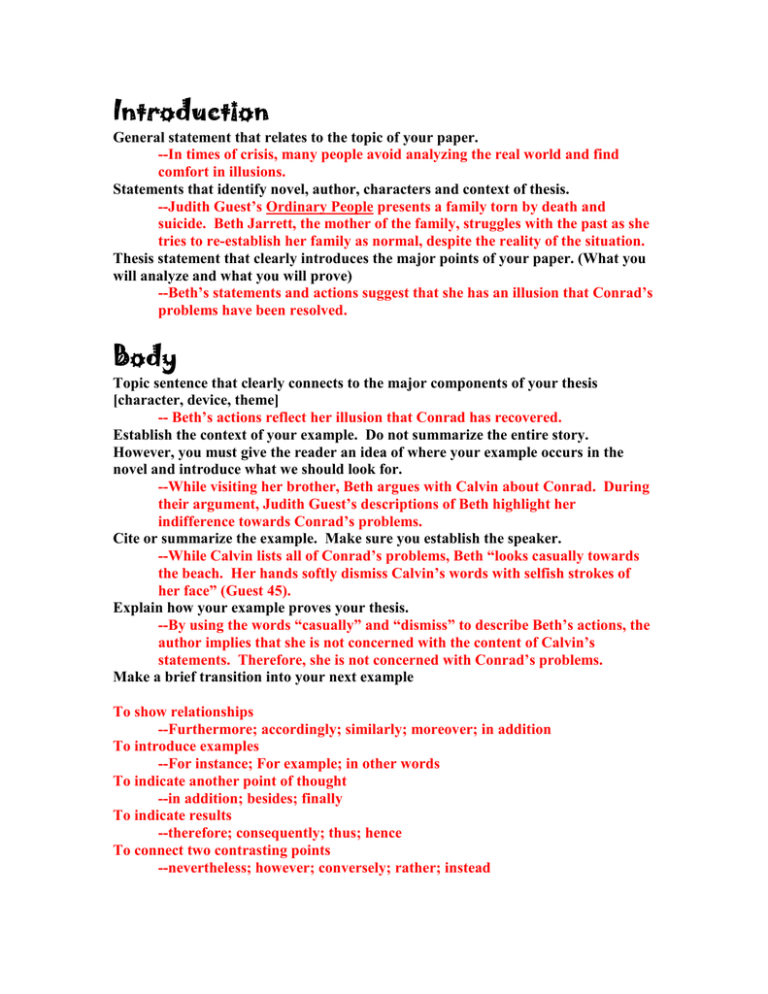
Introduction General statement that relates to the topic of your paper. --In times of crisis, many people avoid analyzing the real world and find comfort in illusions. Statements that identify novel, author, characters and context of thesis. --Judith Guest’s Ordinary People presents a family torn by death and suicide. Beth Jarrett, the mother of the family, struggles with the past as she tries to re-establish her family as normal, despite the reality of the situation. Thesis statement that clearly introduces the major points of your paper. (What you will analyze and what you will prove) --Beth’s statements and actions suggest that she has an illusion that Conrad’s problems have been resolved. Body Topic sentence that clearly connects to the major components of your thesis [character, device, theme] -- Beth’s actions reflect her illusion that Conrad has recovered. Establish the context of your example. Do not summarize the entire story. However, you must give the reader an idea of where your example occurs in the novel and introduce what we should look for. --While visiting her brother, Beth argues with Calvin about Conrad. During their argument, Judith Guest’s descriptions of Beth highlight her indifference towards Conrad’s problems. Cite or summarize the example. Make sure you establish the speaker. --While Calvin lists all of Conrad’s problems, Beth “looks casually towards the beach. Her hands softly dismiss Calvin’s words with selfish strokes of her face” (Guest 45). Explain how your example proves your thesis. --By using the words “casually” and “dismiss” to describe Beth’s actions, the author implies that she is not concerned with the content of Calvin’s statements. Therefore, she is not concerned with Conrad’s problems. Make a brief transition into your next example To show relationships --Furthermore; accordingly; similarly; moreover; in addition To introduce examples --For instance; For example; in other words To indicate another point of thought --in addition; besides; finally To indicate results --therefore; consequently; thus; hence To connect two contrasting points --nevertheless; however; conversely; rather; instead After providing all the necessary proof for this paragraph, write a closing sentence that gives closure to your examples. DO NOT WRITE THE TOPIC SENTENCE FOR YOUR NEXT PARAGRAPH IN THE CLOSING SENTENCE. --Essentially, the author uses her diction to imply that Beth cannot face the reality of her son’s problem. Proper transition: Need to close and open paragraphs correctly Use ideas and words from previous paragraph to connect to new paragraph You are showing how the previous paragraph relates to the new paragraph. Although Beth’s perspective changes the reader’s point of view in this situation, other events affect the reader’s point of view as well. Conclusion Restate the thesis in an original way --Throughout the novel, Judith Guest uses her word choices and imagery to suggest Beth’s inability to accept Conrad’s problems. Revisit the examples that helped establish your point. Show how they relate. --Whenever Beth is involved in a conversation about Conrad’s behaviors, Guest describes Beth with words that convey illusion or disregard. Even the sensory images that describe Beth suggest a cold attitude that she holds towards her son. Explain how this affects the overall novel, character or general context --As a result, Beth serves as Guest’s model of what can happen when a mother refuses to mourn or accept problems that exist in any family. *Giving credit where credit is due: I think this sample is a slightly modified version of a sample that was created by Mr. May. Or Mrs. May. But probably Mr. May. Thanks, Mr. May.
